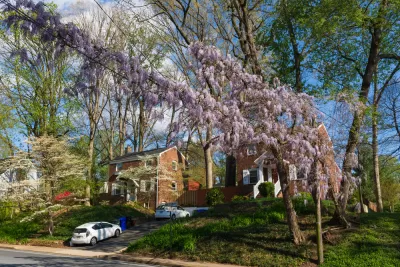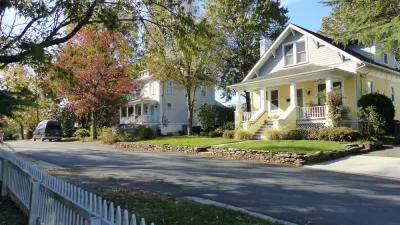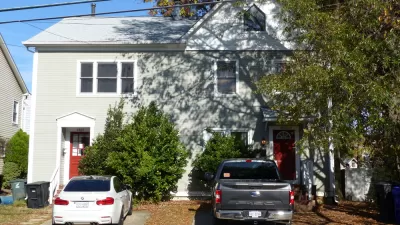A proposal to legalize more housing types in northeastern Virginia has prompted vigorous debate among stakeholders.

“For the better part of the past year, Arlington’s ‘missing middle’ plan has generated a polarizing debate, leading to marathon public meetings and sometimes vicious exchanges on social media,” writes Teo Armus in The Washington Post. Supporters of the proposal say it would create more housing options and make housing more affordable, while critics worry about the potential strain on local infrastructure and say the proposal won’t create truly affordable housing.
According to Armus, the proposal will likely be approved by the Arlington County Board in some form, but, if critics have their way, the proposal’s ambitious goals could be whittled down. For example, the original proposal to allow up to eight units on a residential lot was already narrowed down to six units. Other details of the plan, including an annual development cap, minimum site area, parking requirements, and lot coverage are still up for debate.
Armus notes that policies limiting single-family zoning have had significantly different impacts depending on the technical details of each plan. As Yonah Freemark of the Urban Institute points out, “zoning changes are just one piece of the puzzle.” Proponents of the plan say “only the most extensive version will tip the scales such that home builders see the economic rewards of constructing ‘missing middle’ housing instead of larger, single-family houses.”
FULL STORY: To build more ‘missing middle’ housing, the devil is in the details

Planetizen Federal Action Tracker
A weekly monitor of how Trump’s orders and actions are impacting planners and planning in America.

San Francisco's School District Spent $105M To Build Affordable Housing for Teachers — And That's Just the Beginning
SFUSD joins a growing list of school districts using their land holdings to address housing affordability challenges faced by their own employees.

The Tiny, Adorable $7,000 Car Turning Japan Onto EVs
The single seat Mibot charges from a regular plug as quickly as an iPad, and is about half the price of an average EV.

Seattle's Plan for Adopting Driverless Cars
Equity, safety, accessibility and affordability are front of mind as the city prepares for robotaxis and other autonomous vehicles.

As Trump Phases Out FEMA, Is It Time to Flee the Floodplains?
With less federal funding available for disaster relief efforts, the need to relocate at-risk communities is more urgent than ever.

With Protected Lanes, 460% More People Commute by Bike
For those needing more ammo, more data proving what we already knew is here.
Urban Design for Planners 1: Software Tools
This six-course series explores essential urban design concepts using open source software and equips planners with the tools they need to participate fully in the urban design process.
Planning for Universal Design
Learn the tools for implementing Universal Design in planning regulations.
Smith Gee Studio
City of Charlotte
City of Camden Redevelopment Agency
City of Astoria
Transportation Research & Education Center (TREC) at Portland State University
US High Speed Rail Association
City of Camden Redevelopment Agency
Municipality of Princeton (NJ)





























